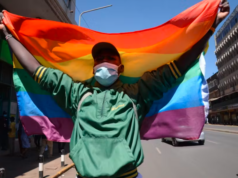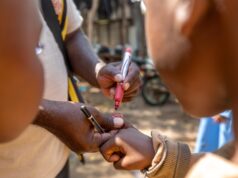The Ministry of Health has warned Kenyans about spreading fake news about Mpox.
This is after unverified information about a local media house recording three cases of Mpox circulated on social media for the better part of Wednesday.
However, the media house has refuted the claims, asking Kenyans to treat it as fake information.
In a statement on X, the ministry has advised Kenyans to steer clear of fake news and rely on the ministry’s verified information.
“Stop spreading misinformation about Mpox! Always rely on accurate information from trusted sources such as the Ministry of Health. Let us work together to keep our communities informed and safe,” the statement read.
Kenya reported its sole case on July 31. The patient was a 42-year-old long-distance truck driver, who lives in Kinoo estate, Kiambu County, the ministry said.
He had travelled from Kampala to Mombasa on July 12. He was travelling to Tanzania at the time of detection at the Taveta border crossing.
“The good news is that the patient has fully recovered,” Health CS Deborah Barasa said.
“Testing of suspected cases is currently being conducted at the Ministry of Health National Public Health laboratories (NPHL) in collaboration with partner institutions such as KEMRI.”
Kenya has been asked to prepare for a possible Mpox vaccination in the event of an upsurge.
The country has not approved any vaccines, but the World Health Organization said it will help countries speed up regulatory approvals.
The WHO said it expected countries that reported an outbreak to “initiate plans to advance Mpox vaccination activities in the context of outbreak response in areas with incident cases, targeting people at high risk of infection.”
It also asked the countries to convene national immunization technical advisory groups and prepare national policy mechanisms to apply for vaccines from Gavi or other bodies.
“These temporary recommendations are issued to states parties experiencing the upsurge of Mpox, including, but not limited to, the Democratic Republic of the Congo and Burundi, Kenya, Rwanda, and Uganda,” said the International Health Regulations (2005) Emergency Committee on Mpox 2024, appointed by the WHO.
Mpox is a viral disease spread through contact with an infected person, contaminated personal items or surfaces, or through sexual contact.
Those at risk of the disease may require hospitalization or treatment with antivirals.
Groups at increased risk from the disease include infants and young children, pregnant women, the elderly, and severely immunocompromised persons.
Confirmed cases should be instructed to isolate until their rashes heal completely.


















